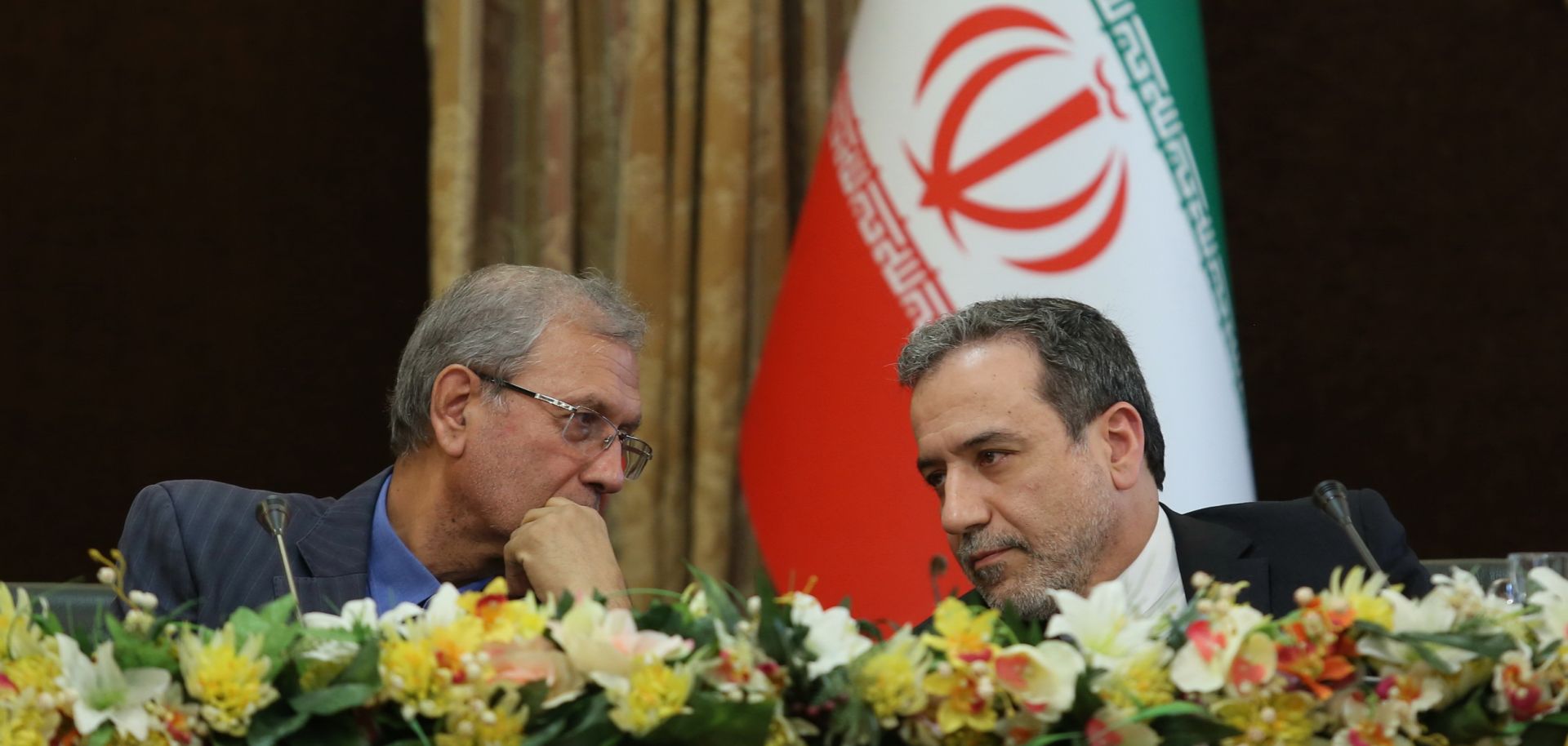COLUMNS
Iran Goes All in for a Game of Nuclear Chicken

Jul 11, 2019 | 09:00 GMT

A handout picture provided by the Iranian presidency on July 7, 2019, shows Iran's government spokesman Ali Rabiei, left, and Deputy Foreign Minister Abbas Araghchi during a joint news conference in Tehran. Iran does not necessarily want to develop nuclear weapons -- but that could change.
(-/AFP/Getty Images)
Highlights
- Iran has taken the provocative step of reaccelerating aspects of its nuclear program, yet its end goal is not necessarily to develop nuclear weapons but to increase its leverage and reenter talks for sanctions relief.
- Unlike North Korea, Iran is not structured to survive as an isolated pariah state, meaning sanctions will hurt Tehran much more than they would hurt Pyongyang.
- Iran has previously refrained from taking the final steps to construct a nuclear bomb, although its strategy has depended on refusing to rule out the possibility entirely. Tehran, accordingly, is likely to resume activities that make those final steps more attainable.
- Both the United States and Iran are walking a tightrope in the latest game of nuclear brinkmanship, but the latter appears to have calculated that it can accept the risk of a potential U.S. — or Israeli — strike inside the country.
Subscribe Now
SubscribeAlready have an account?
